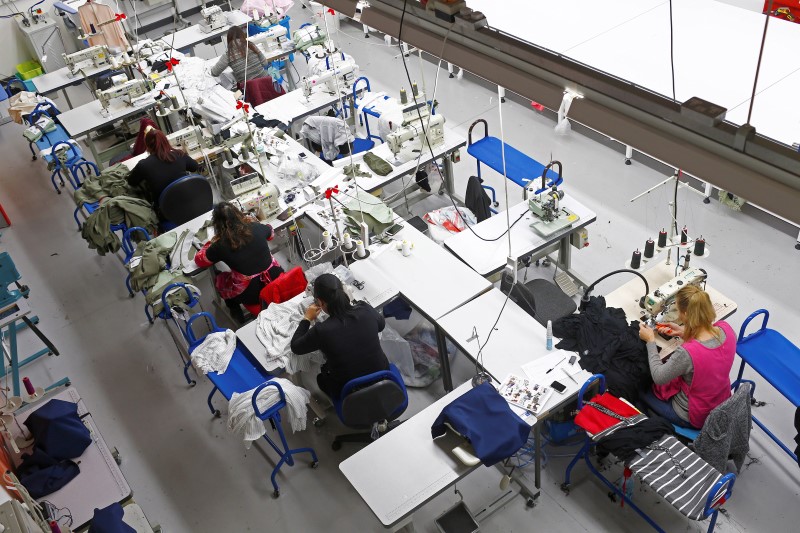By Andy Bruce and David Milliken
LONDON (Reuters) - British industrial output suffered its sharpest fall in almost two years in November and retail spending disappointed over Christmas, denting hopes that the economy bounced back from a mid-year slowdown at the end of 2015.
Sterling fell to a 5-1/2-year low against the dollar after industrial production dropped unexpectedly as unusually mild weather curbed demand for heating gas and factory output contracted for a second month in a row.
The 0.7 percent month-on-month fall in production was the steepest since January 2013, official statisticians said.
Britain has been one of the fastest-growing big advanced economies in the world for the last couple of years. But it has relied heavily on domestically focussed services and consumer spending for growth, frustrating hopes for a better-balanced recovery.
Adding to a sense that the economy might struggle to exceed the tepid 0.4 percent expansion seen in the third quarter of 2015, retail spending over the crucial Christmas period was "disappointing", the British Retail Consortium said.
J.P. Morgan said it now expects the Bank of England's Monetary Policy Committee (MPC) to wait until the final months of the year before hiking interest rates from record-low levels.
"This ... report is the straw that breaks the camel's back," J.P. Morgan economist Malcolm Barr said. "Recent disappointment in the pay data and the drop in oil prices had already put our call for the MPC to raise rates in May at risk."
The BoE will publish its first monetary policy decision of the year on Thursday. Economists do no expect any change to the 8-1 majority of policymakers who want to keep rates on hold.
Compared with a year ago, industrial output was up 0.9 percent, the weakest annual growth since July, while manufacturing output was 1.2 percent lower than November 2014.
The Office for National Statistics said industrial production would have to rise 0.5 percent on the month in December to prevent the sector exerting a drag on economic growth in the fourth quarter.
December's weather was as unseasonably mild as in November, when electricity and gas consumption sank 2.1 percent on a seasonally adjusted basis, the biggest monthly drop since April.
Separately, British retail spending over the Christmas holidays recorded its weakest quarterly growth in more than a year as stores competed to offer discounts, the BRC said.
Retail spending rose by 0.9 percent in the three months to December compared with a year earlier, the slowest calendar quarter of growth since the third quarter of 2014.
Price-cutting by retailers and low oil prices are likely to drag further on inflation, which has been stuck in a narrow range of between plus and minus 0.1 percent since February,
Data from market researcher Kantar Worldpanel also showed no Christmas uplift for the British grocery market, with Sainsbury's (L:SBRY) the only one of the four major firms to grow sales.

Instead, Britons seem to be spending more on eating and drinking outside the home. The hospitality sector led growth in consumer spending in December, according to from payment card provider Visa Europe, whose upbeat figures on Monday contrasted with a more downbeat message from other parts of the economy.